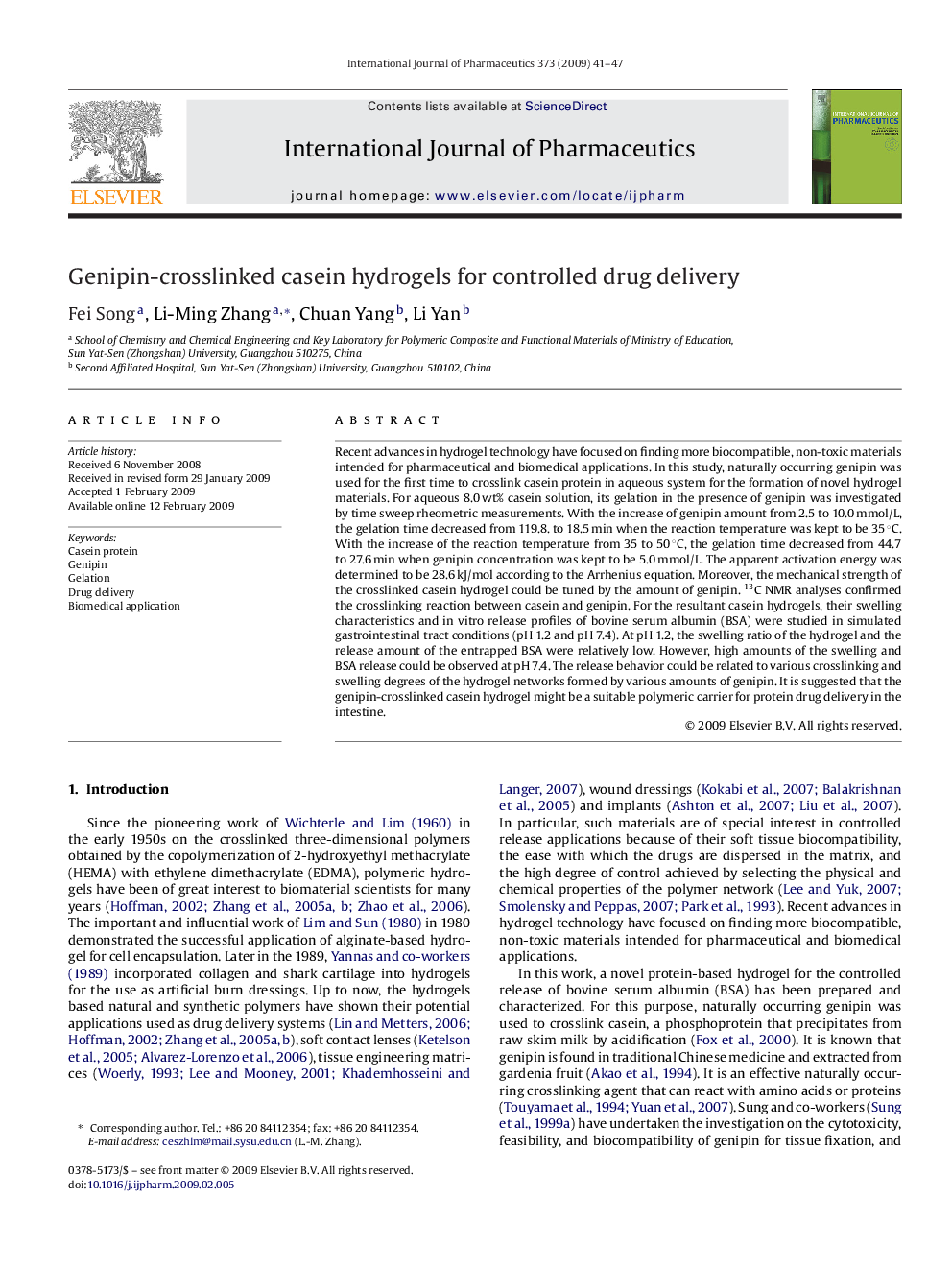| Article ID | Journal | Published Year | Pages | File Type |
|---|---|---|---|---|
| 2504876 | International Journal of Pharmaceutics | 2009 | 7 Pages |
Recent advances in hydrogel technology have focused on finding more biocompatible, non-toxic materials intended for pharmaceutical and biomedical applications. In this study, naturally occurring genipin was used for the first time to crosslink casein protein in aqueous system for the formation of novel hydrogel materials. For aqueous 8.0 wt% casein solution, its gelation in the presence of genipin was investigated by time sweep rheometric measurements. With the increase of genipin amount from 2.5 to 10.0 mmol/L, the gelation time decreased from 119.8. to 18.5 min when the reaction temperature was kept to be 35 °C. With the increase of the reaction temperature from 35 to 50 °C, the gelation time decreased from 44.7 to 27.6 min when genipin concentration was kept to be 5.0 mmol/L. The apparent activation energy was determined to be 28.6 kJ/mol according to the Arrhenius equation. Moreover, the mechanical strength of the crosslinked casein hydrogel could be tuned by the amount of genipin. 13C NMR analyses confirmed the crosslinking reaction between casein and genipin. For the resultant casein hydrogels, their swelling characteristics and in vitro release profiles of bovine serum albumin (BSA) were studied in simulated gastrointestinal tract conditions (pH 1.2 and pH 7.4). At pH 1.2, the swelling ratio of the hydrogel and the release amount of the entrapped BSA were relatively low. However, high amounts of the swelling and BSA release could be observed at pH 7.4. The release behavior could be related to various crosslinking and swelling degrees of the hydrogel networks formed by various amounts of genipin. It is suggested that the genipin-crosslinked casein hydrogel might be a suitable polymeric carrier for protein drug delivery in the intestine.
